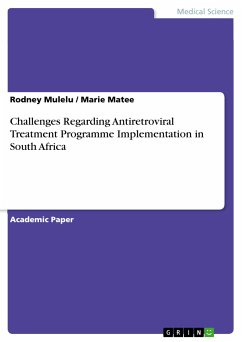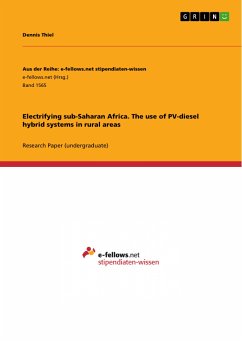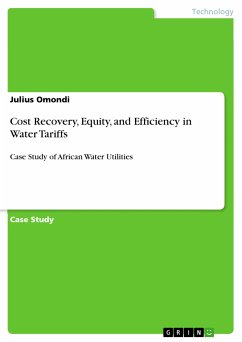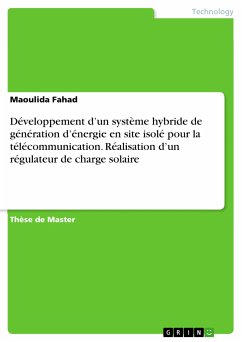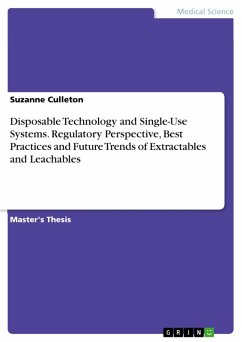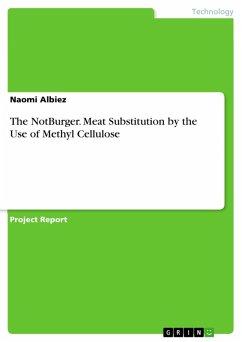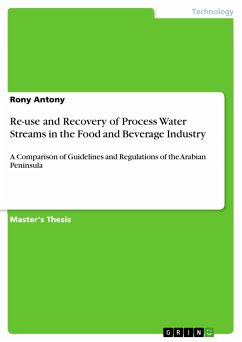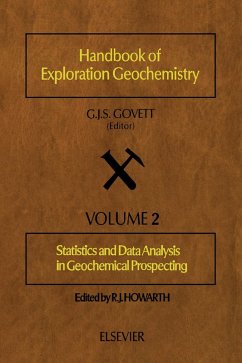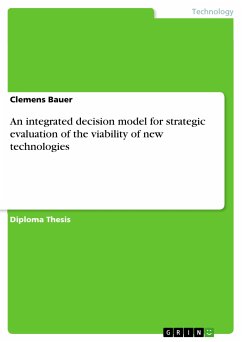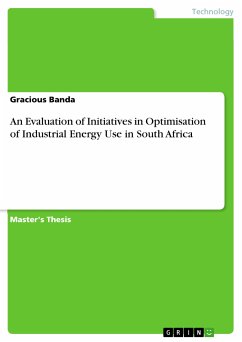
An Evaluation of Initiatives in Optimisation of Industrial Energy Use in South Africa (eBook, PDF)

PAYBACK Punkte
0 °P sammeln!
Master's Thesis from the year 2017 in the subject Engineering - Power Engineering, grade: 70.0%, University of Derby (Engineering and Technology), course: Master of Science in Professional Engineering, language: English, abstract: Evaluation of industrial energy use optimisation in this project has been approached by introducing the aims and objectives of the project and asking questions about the research which seeks to establish how various industries from different sectors utilise energy in their industrial processes. This is an action research which specifically focuses on the manufacturin...
Master's Thesis from the year 2017 in the subject Engineering - Power Engineering, grade: 70.0%, University of Derby (Engineering and Technology), course: Master of Science in Professional Engineering, language: English, abstract: Evaluation of industrial energy use optimisation in this project has been approached by introducing the aims and objectives of the project and asking questions about the research which seeks to establish how various industries from different sectors utilise energy in their industrial processes. This is an action research which specifically focuses on the manufacturing, mining and Commercial industry sectors. Literature has been searched and reviewed based on global, continental and national practices through exploration of different perspectives and practices by experts and practitioners in the field of energy efficiency as well as academia. General reflection and selection of reference documentation has been governed by the problem statement and relevant literature considered to provide answers to the research questions posed. The adopted approach model framework is based on O'Leary. The mixed methods approach combining both qualitative research and quantitative research has been adopted. This has been achieved by designing and introducing a research model framework as well as adopting existing approaches for execution of energy audit activities. The designed research model framework has been utilised throughout as a significant guide in writing this thesis whilst existing model frameworks based on industrial current best practices and standards have ensured writing in consistency with internationalised standards. Based on forty-four firms from a combination of industry sectors of manufacturing, mining and commercial, the analysis and evaluation of data has entailed a tactic of picking one firm from each of the sectors, collection of the tariffs and monthly bills of up to a year, consolidation of the same and then interpret and analyse these in order to draw meaningful statistical inferences that point to available opportunities in industrial systems energy utilisation, the identified opportunities being tabulated in relation to each of the three firms selected representing a sample statistic out of the forty-four audited. This thesis investigates the current perspectives, culture, practices, technologies and approaches in industrial energy utilisation as its specific subject matter. It is envisaged that this study will predictively test the result of such activities and then prove them against the fulfilment of the specified objectives and set out a theme for the outcomes to be reliable and validated for any desired future academic or industrial use.
Dieser Download kann aus rechtlichen Gründen nur mit Rechnungsadresse in A, B, BG, CY, CZ, D, DK, EW, E, FIN, F, GR, HR, H, IRL, I, LT, L, LR, M, NL, PL, P, R, S, SLO, SK ausgeliefert werden.




